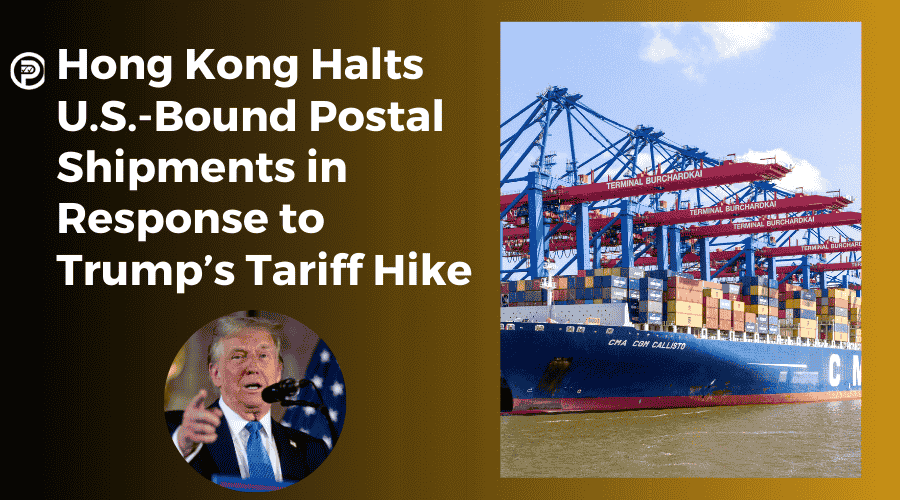Key Takeaways:
- Hong Kong suspends goods shipments to the U.S. via postal service in response to new U.S. tariffs.
- Trump ended the $800 “de minimis” exemption for shipments from Hong Kong.
- U.S. tariffs on affected goods will rise to 120% by May 2.
- Air mail of goods ends April 27; sea shipments already halted.
- Document-only mail is unaffected; private couriers may replace postal options.
April 17, 2025 – Hong Kong — Hong Kong’s government announced it will suspend postal shipments of goods to the United States, citing steep tariff hikes imposed by the Trump administration. The decision comes amid intensifying trade tensions between Washington and Beijing, with Hong Kong increasingly caught in the middle.
In a statement released Wednesday, Hongkong Post confirmed it will no longer accept sea-bound parcels destined for the U.S. starting immediately, with air mail shipments of goods set to cease on April 27. The move is a direct response to the U.S. eliminating the “de minimis” tariff exemption, which previously allowed goods valued under $800 to enter duty-free.
President Donald Trump’s executive order, signed earlier this month, replaces the exemption with a new tariff structure, imposing a 120% levy—or a flat fee starting at $100 per postal item, set to double by June 1. The administration argues the exemption was being exploited by international retailers to avoid import duties and customs checks.
Related post: China’s Economy Grows 5.4% in First Quarter of 2025, but Trump Tariffs Cast a Long Shadow
“The U.S. is unreasonable, bullying, and imposing tariffs abusively,” the Hong Kong government said in its statement, adding that Hongkong Post “will definitely not collect any so-called tariffs on behalf of the U.S.”
While shipments containing documents will continue, the suspension of package delivery will force individuals and businesses to rely on private couriers like DHL or FedEx, potentially driving up costs. A DHL spokesperson said the company will continue processing U.S.-bound shipments while monitoring the situation.
Hong Kong, a semi-autonomous city long known for its status as a free-trade hub, has been subject to U.S. tariffs equal to those imposed on mainland China since its special trading privileges were revoked in 2020 during Trump’s first term. The revocation was linked to concerns over Beijing’s tightening grip on the city, particularly after the enactment of the controversial national security law.
Critics argue the latest U.S. move undermines Hong Kong’s position as a global trade center and unfairly burdens consumers. In contrast, U.S. officials maintain the tariffs are necessary to protect domestic markets and enforce fair trade practices.
As geopolitical friction intensifies, Hong Kong’s suspension of mail services marks a new chapter in the ongoing tariff dispute, raising uncertainty for cross-border commerce and everyday consumers alike.

